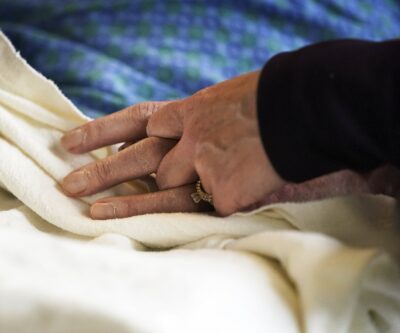People ‘generally’ support advance MAID requests before decision-making capacity lost: report
By Canadian Press on October 31, 2025.

TORONTO — A new Health Canada report says people surveyed about medical assistance in dying “generally” support allowing patients who will lose their decision-making capacity to give advance consent.
Right now, MAID is legal for people who have a serious and incurable medical condition and are experiencing intolerable suffering, but they must be able to give consent immediately before they die.
There have been calls to allow people with dementia to give advance consent to receive a medically assisted death when they meet their own definition of intolerable suffering, such as not being able to feed themselves or recognize loved ones.
The federal government conducted surveys and meetings across the country to find out what the public — including health-care workers, people with disabilities and people with lived experience — thinks about advance consent before making any recommendations to change the MAID laws.
Many people surveyed said they were in favour of advance consent because they believed in individual choice about end-of-life care and dignity in dying.
Others worried that people might be predicting they would want to die based on fear and stigma about disability.
Some health-care providers were concerned that not getting final consent from someone who had lost capacity would leave them with doubts about whether administering MAID was really what the patient wants.
Many people said it would be important to periodically check in with someone who has made an advance request so they would have the chance to review, change or revoke it.
The report also highlighted the need for better end-of-life health and social supports, including palliative care and home care, in addition to the option of MAID.
Quebec already allows advance requests, however it’s considered an offence under the federal Criminal Code.
The government’s public consultations and surveys took place between November 2024 and February 2025. Health Canada released the report with the findings on Wednesday.
The consultations included an online questionnaire that was open to anyone 18 years and older living in Canada and more than 46,000 people completed it.
The questionnaire was not meant to be statistically representative so it also randomly sampled 1,000 Canadians to complete the survey and weighted the data “to ensure that the sample distribution reflects the actual Canadian adult population based on Statistics Canada census data,” the Health Canada report said.
It said the margin of error was plus or minus 3.1 per cent, 19 times out of 20.
The government also held nearly 200 virtual roundtable meetings with provincial and territorial governments, health advocacy groups, Indigenous groups, disability groups and other organizations both for and against MAID.
This report by The Canadian Press was first published Oct. 31, 2025.
Canadian Press health coverage receives support through a partnership with the Canadian Medical Association. CP is solely responsible for this content.
Nicole Ireland, The Canadian Press
21-20

